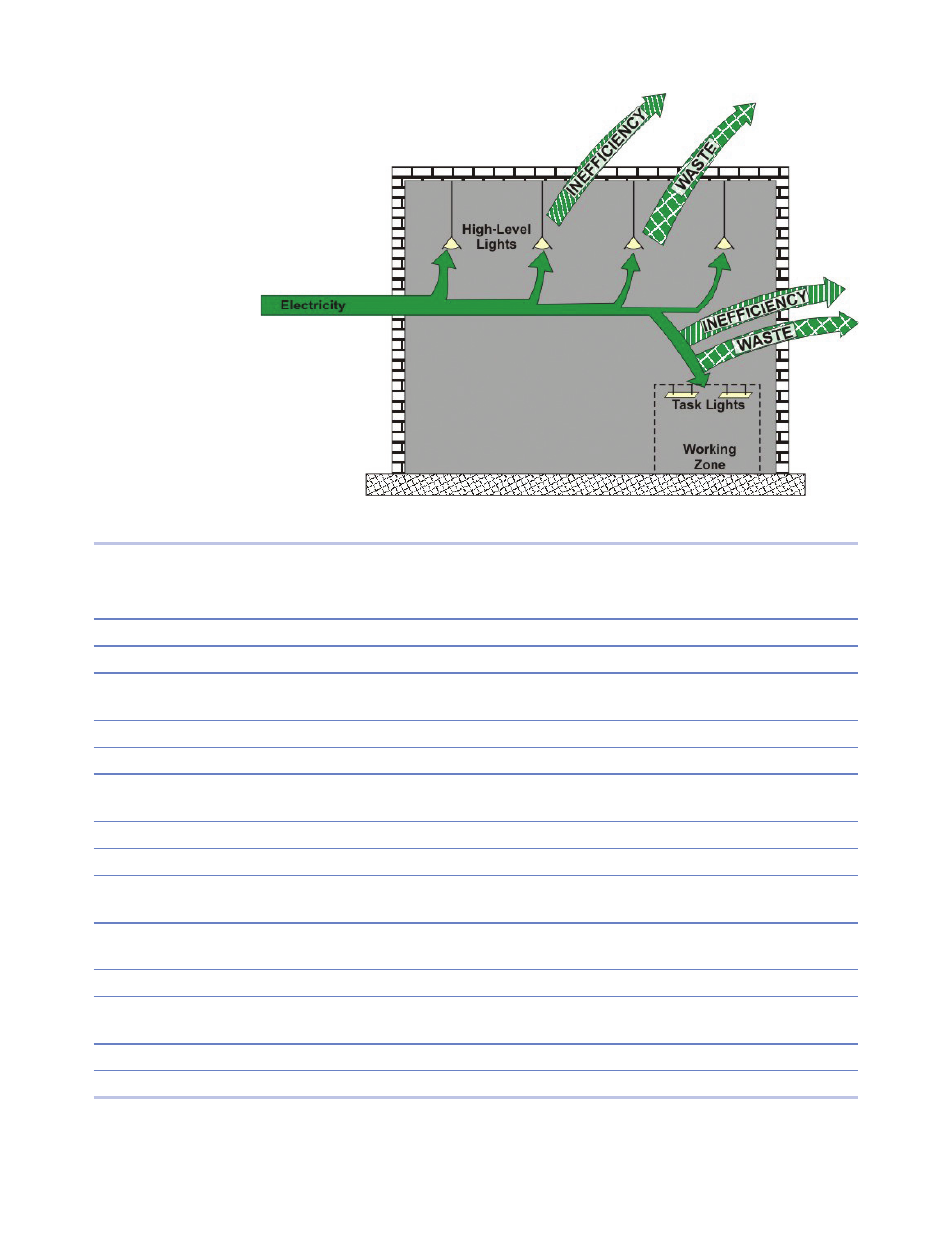Retrotec USACE User Manual
Page 104

82 ENERGY & PROCESS ASSESSMENT PROTOCOL
Figure 24. Building lighting.
TABLE 6. CAUSES OF ENERGY WASTE AND INEFFICIENCY IN LIGHTING SYSTEMS.
Waste/ineffi ciency
Reference/appendix
Having more light in space than is necessary to perform the task
Waste
D1
Leaving electric lighting on in daylit spaces during daylight hours.
Waste
D5.2
Having the entire fl oor of a building lit when only a few people are
working
Waste
D.3
Leaving lights on in unoccupied spaces
Waste
D.4
Leaving outdoor lighting on during the daylight hours
Waste
D.5
Using outdoor lighting that lights up the sky instead of lighting the
streets and walkways
Ineffi ciency
D.6
Incandescent “A” lamps
Ineffi ciency
D.7
Older T-8 fl uorescent lamps and electronic ballasts
Ineffi ciency
D.8
Using older technologies such as T12 fl uorescent lamps with magnetic
ballasts
Ineffi ciency
D.9
Using incandescent lighting for general lighting instead of compact
fl uorescent lighting
Ineffi ciency
D.10
Using warm-colored fl uorescent lamps
Ineffi ciency
D.11
Using high levels of ambient lighting for illuminating tasks rather than
using task lighting with lowered ambient lighting
Ineffi ciency
D.12
Using mercury vapor lamps and ballasts
Ineffi ciency
D.13
Using exit signs that are not LED exit signs
Ineffi ciency
D.14
